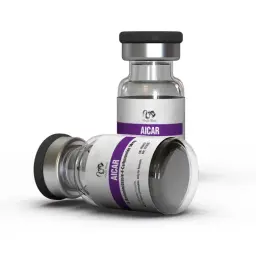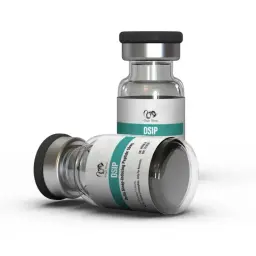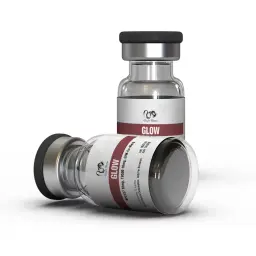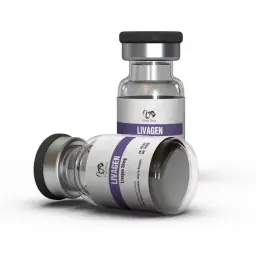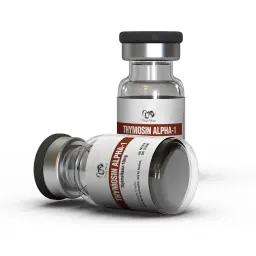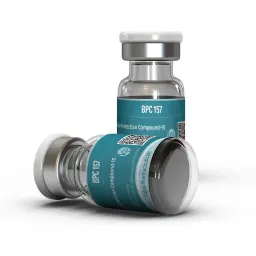Recovery & Injury Repair (25 Offers)
Dragon Pharma Recovery Peptides provide advanced research compounds for tissue repair and inflammation management. This category features peptides like BPC-157 and TB-500, which are studied for their potential to accelerate healing of muscles, tendons, and ligaments following intense training or injury.
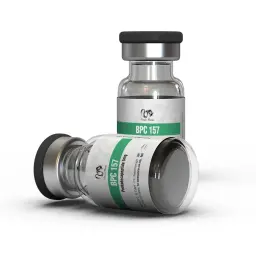
Drug Class: Synthetic Peptide, Wound Healing Agent
Composition: Pentadecapeptide
Dosage: 5 mg/vial
Form: Lyophilized Powder
Unit: 2 mL Multidose Vial
Brand: Dragon Pharma
Laboratory Test: View Lab Report
For Subcutaneous Injection
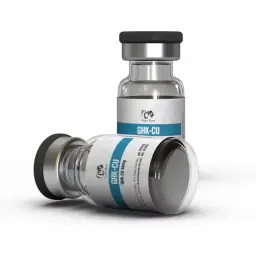
Drug Class: Bioactive Copper Peptide
Composition: GHK-Cu (Glycyl-L-Histidyl-L-Lysine)
Dosage: 50 mg/vial
Form: Lyophilized Powder
Unit: 2 mL Vial
Brand: Dragon Pharma
For Subcutaneous Injection or Topical Use
Laboratory Test: View Lab Report
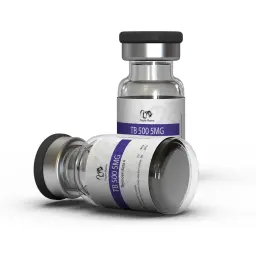
Drug Class: Synthetic Peptide (Thymosin Beta-4)
Composition: Thymosin Beta-4
Dosage: 5 mg/vial
Form: Lyophilized Powder
Unit: 2 mL Vial
Brand: Dragon Pharma
Laboratory Test: View Lab Report
For Subcutaneous Injection After Reconstitution
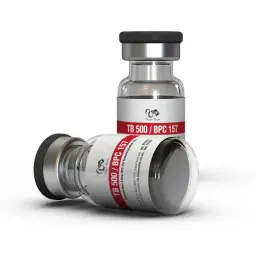
Drug Class: Synthetic Peptide Combination
Composition:
- Thymosin Beta-4 5 mg
- BPC 157 5 mg
Dosage: 10 mg/vial (5 mg + 5 mg)
Form: Lyophilized Powder
Unit: 2 mL Vial
Brand: Dragon Pharma
Laboratory Test: View Lab Report
For Subcutaneous Injection After Reconstitution
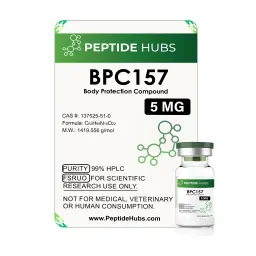
Drug Class: Synthetic Pentadecapeptide
Composition: BPC 157
Dosage: 5 mg/vial
Form: Lyophilized Powder
Unit: 2 mL Vial
Brand: Peptide Hubs
Laboratory Test: View Lab Report
For Research and Laboratory Use Only
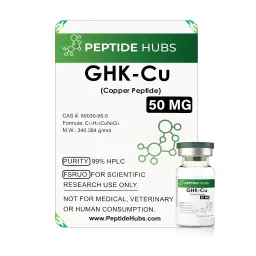
Drug Class: Copper-Binding Tripeptide
Composition: GHK-Cu (Gly-His-Lys)
Dosage: 50 mg/vial
Form: Lyophilized Powder
Unit: 2 mL Vial
Brand: Peptide Hubs
Laboratory Test: View Lab Report
For Research and Laboratory Use Only
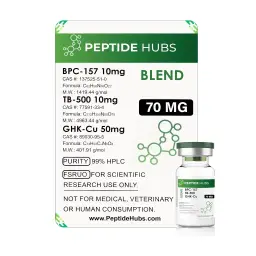
Drug Class: Peptide Healing & Regenerative Complex
Composition:
- BPC-157 10 mg
- TB-500 10 mg
- GHK-Cu 50 mg
Dosage: 70 mg/vial
Form: Lyophilized Powder
Unit: 2 mL Vial
Brand: Peptide Hubs
For Research Use Only
Laboratory Test: View Lab Report
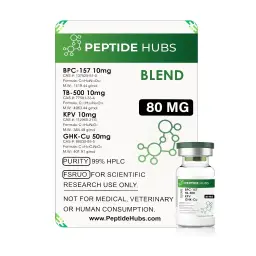
Drug Class: Advanced Anti-Inflammatory & Healing Peptide Complex
Composition:
- KPV 10 mg
- BPC-157 10 mg
- TB-500 10 mg
- GHK-Cu 50 mg
Dosage: 80 mg/vial
Form: Lyophilized Powder
Unit: 2 mL Vial
Brand: Peptide Hubs
For Research Use Only
Laboratory Test: View Lab Report
Dragon Pharma Recovery Peptides: Researching Advanced Tissue Repair
For athletes pushing physical limits, efficient recovery is as crucial as the training itself. Dragon Pharma Recovery Peptides offer a focused selection of research compounds designed to support the body's natural healing processes. These peptides, including BPC-157, TB-500, and GHK-Cu, are studied for their roles in cellular repair, reducing inflammation, and promoting the regeneration of various tissues, from muscle fibers to connective tissues.
How Recovery Peptides Support the Healing Process
Recovery peptides work through targeted signaling at the cellular level. They can promote angiogenesis (the formation of new blood vessels), increase collagen production, and modulate the body's inflammatory response. This creates a favorable environment for repairing damaged tissues more efficiently. Unlike general anti-inflammatories that merely mask pain, these compounds are researched for their potential to actively enhance the structural repair of injured areas.
Key Peptides and Their Research Applications
Dragon Pharma's recovery category includes peptides with complementary mechanisms that are central to many research protocols focused on healing.
- BPC-157: A stable peptide widely studied for its potential to accelerate the healing of muscles, tendons, and ligaments. It is also researched for its protective effects on the gut lining and its ability to promote wound healing.
- TB-500 (Thymosin Beta-4): Known for its role in promoting cell migration, which is essential for tissue repair. It is studied for its potential to reduce inflammation and increase flexibility in connective tissues.
- GHK-Cu: A copper-binding peptide researched for its ability to promote collagen synthesis, improve skin elasticity, and support wound healing through its antioxidant and anti-inflammatory properties.
Synergistic Stacks for Comprehensive Repair
Researchers often find that combining recovery peptides can produce more robust results than using a single compound. A common stack pairs BPC-157 with TB-500. BPC-157 provides strong localized healing signals, while TB-500 promotes systemic cell migration and reduces inflammation. Adding GHK-Cu to a protocol can further support the rebuilding of structural proteins like collagen, creating a comprehensive approach to tissue regeneration.
Considerations for Recovery Research Protocols
Effective research with recovery peptides involves careful consideration of dosage, administration site, and protocol length. While systemic effects are possible, localized administration near an injury site is often a focus of study. The timing of administration relative to an injury or intense training session can also be a significant variable. As with all research compounds, sterile preparation and handling are paramount to ensure valid results and maintain peptide integrity.



